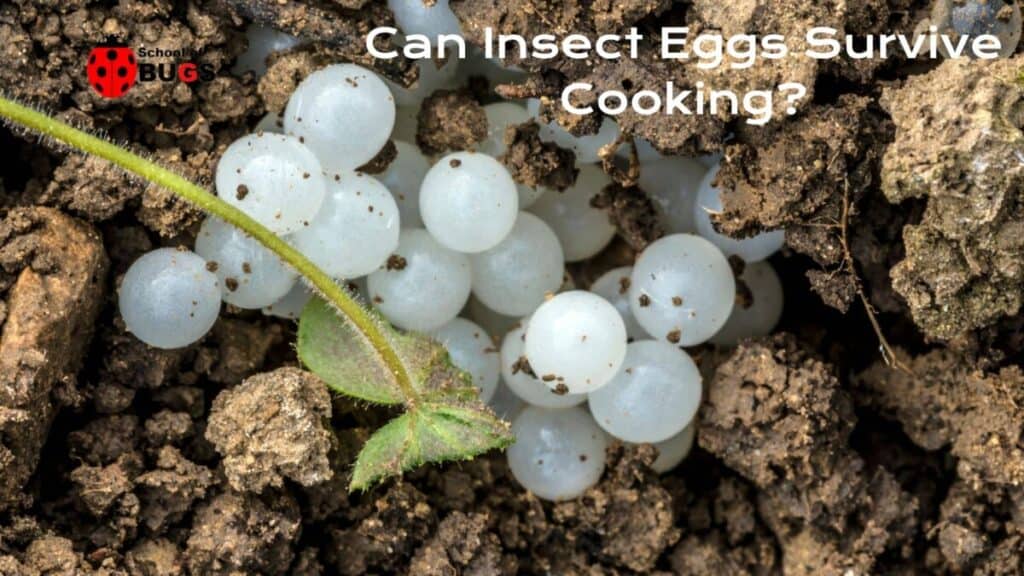
Insects can lay their eggs in all manner of places. This includes your food. In fact, chances are that much of the food that you consume has some insect eggs on it, even if you can’t see them.
So, are these insect eggs dangerous? Can they survive the cooking process? Let’s take a look.
On this page, we are going to discuss the following.
- Whether insect eggs can survive cooking
- Whether it is dangerous to eat insect eggs
- How you can spot whether there are insect eggs on your food
- How you can remove insect eggs before cooking
Can Insect Eggs Survive Cooking?
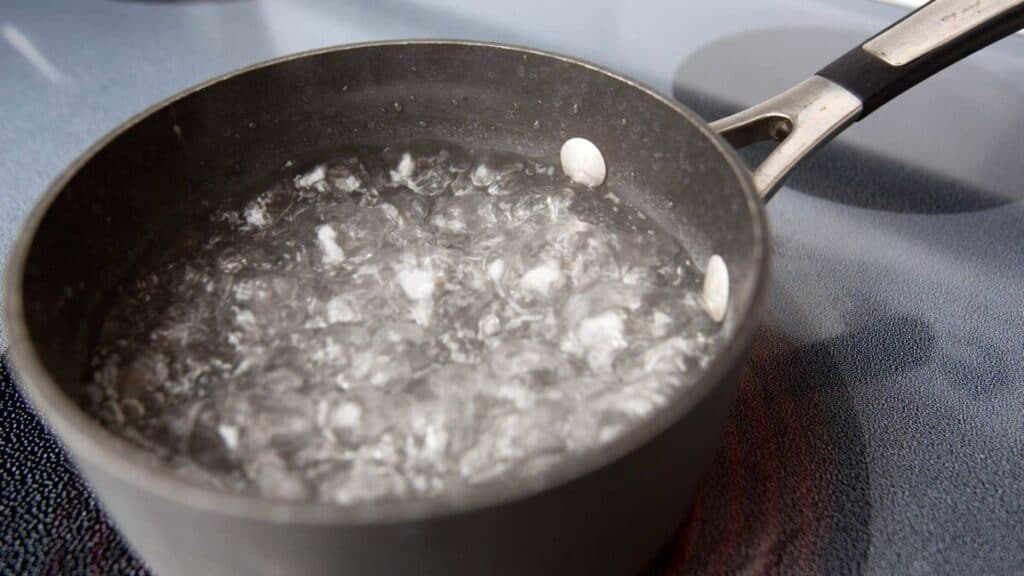
No.
Insect eggs won’t be able to survive the cooking process. They may be able to take a small amount of heat.
However, as soon as the eggs are exposed to anything that could feasibly ‘cook’ the food, then that is going to be the end of the egg.
The same applies to any small insects or bacteria that are crawling about on the piece of food. There is absolutely no way that they are going to survive the cooking process.
This means that if you do cook some food with insect eggs on them, you aren’t going to be running into any issues. You are fine eating the insect eggs.
The egg will have completely been killed, as would anything inside of that egg. In fact, with how small the vast majority of insect eggs are, most of them will probably just burn away with no trace of the insect egg left at all.
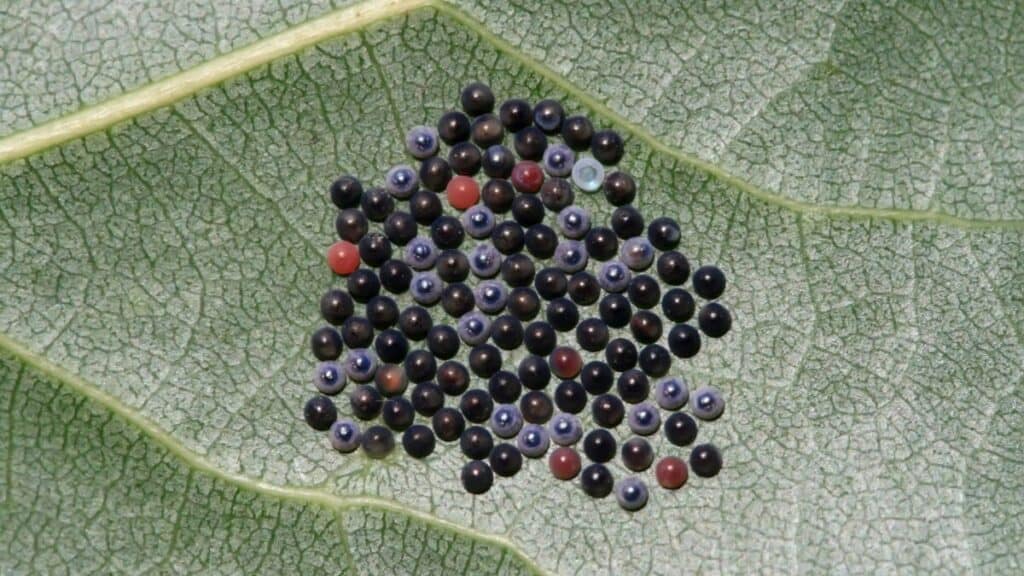
Even if the cooking process didn’t destroy the eggs, by the time the eggs reached your stomach, the stomach acid would kill them.
There is literally no way that you are going to be having unhatched eggs kicking around in your body, just waiting to hatch again.
To be honest, your main concern probably isn’t going to be the insect eggs anyway. The main issue will be any eggs that have hatched.
Again, this isn’t going to cause too many health issues. It just makes food seem a little unappetizing when you have larvae or fully-grown insects walking around on it. The cooking process will kill these animals, but you will need to find some way to get them out of your food.
How High Does The Cooking Temperature Need To Be To Destroy Insect Eggs?
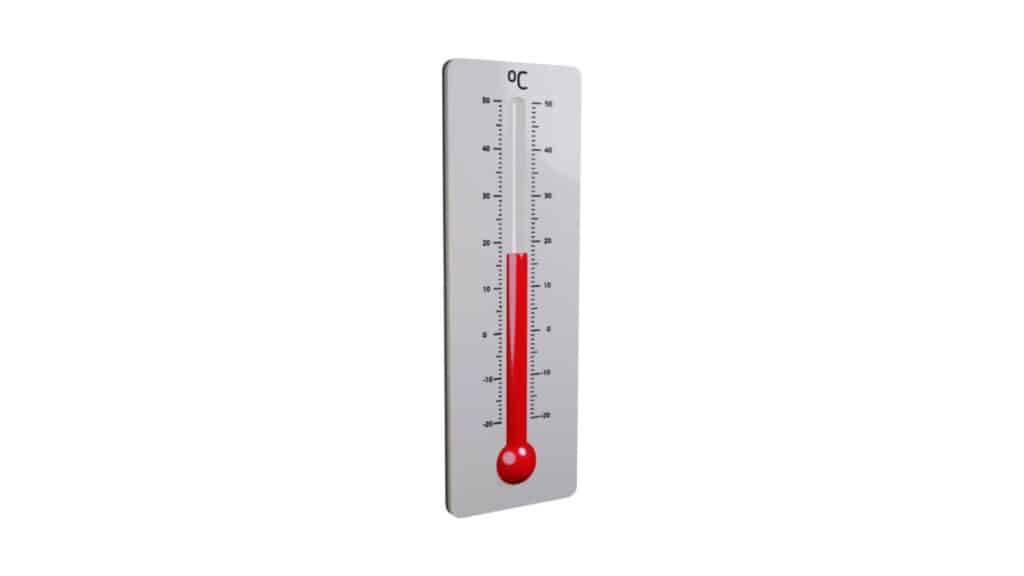
There does seem to be a little bit of a debate on this.
If you are cooking food, then we can assure you that no matter what temperature you cook that food at, it is going to kill any insect eggs on that food.
There is no such thing as an ultra-durable insect egg that will be able to deal with the rigors of oven cooking, frying pans, or being cooked on the hob. The egg will be destroyed.
If you are merely heating up the food to destroy the insect eggs (as some people do with grains and cereals), then you want to slow cook the food.
You should try and cook at least 120F for a couple of hours. This temperature shouldn’t be high enough to properly cook the food, but it should be high enough to eliminate any eggs that may be sitting on the food.
Although, do make sure that you keep an eye on the food. There may be small amounts of burning on certain food products, but it shouldn’t be anything too crazy.
As long as you go over between 100F to 120F when it comes to cooking your food, then you should be able to destroy the eggs. Although, do bear in mind that it may be a bit of a slower process if you are heating at lower temperatures.
The eggs will most likely start to be destroyed somewhere around the 80F to 90F mark with sustained heat, but you do need to sustain those temperatures for long periods to ensure that all of them are destroyed.
How Do You Know There Are Insects Eggs On Your Food?
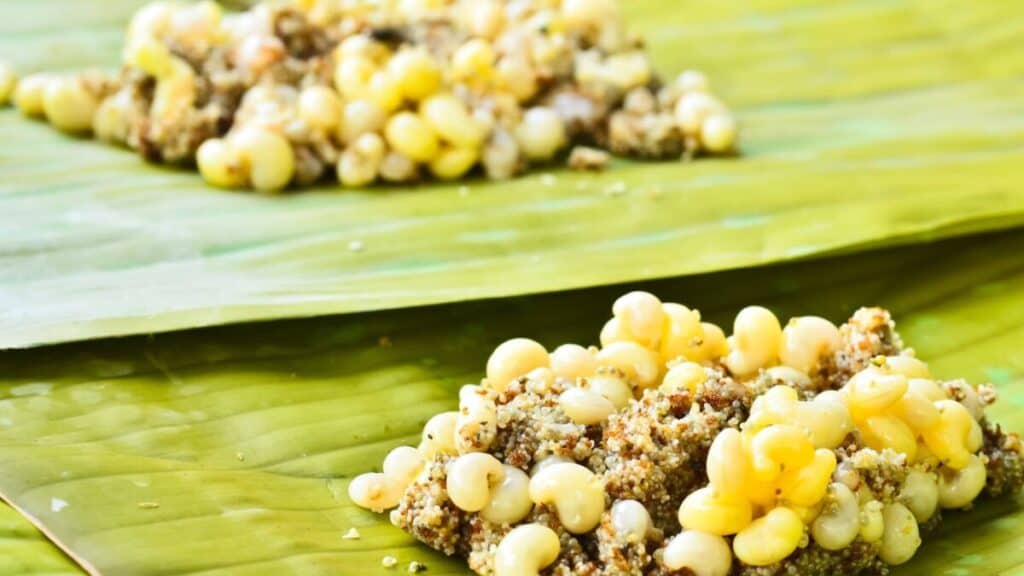
Most of the time you don’t. In fact, did you know FDA guidelines allow a certain number of insects/insect eggs on food? This is how common they are.
Chances are that you have already eaten insect eggs, but you probably weren’t even aware that you were eating the insect eggs.
The thing with insect eggs is that they tend to be quite small. We are talking under 1mm in length. They can come in a variety of colors too. Some may be black. Some may be white.
Some may be completely transparent. While the eggs can easily be laid in small groups of eggs, most of the insect eggs that you find on your food will be solitary eggs.
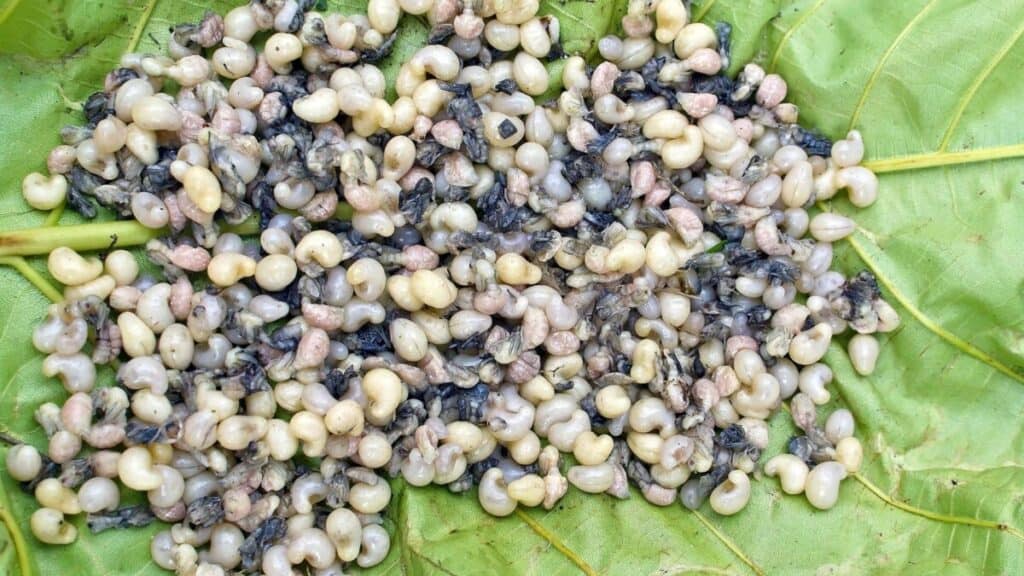
You can have a look. You may see a couple of black spots here and there. These can potentially be insect eggs but, of course, there is no guarantee that this is what they are.
In the vast majority of cases, the only way to be able to tell that you actually have insect eggs in your food is you notice the presence of hatched insects.
If you see insects hanging around your food, or you see larvae around the food, then there is a good chance that there are eggs on your food.
Once again, we do want to point out that you probably don’t need to worry about looking for eggs in your food too much.
Most of your food will probably have insect eggs on them anyway (a lot appear during the initial food processing) and, as long as the food isn’t rotten or going moldy, there is going to be absolutely no danger in consuming them.
Is It Dangerous To Eat Insect Eggs?
For the most part, no.
Insects are a delicacy in many cultures. This includes insect larvae. In theory, with most insects, you should be 100% fine consuming them.
This includes the insects that many people would normally find quite grotesque such as maggots. They are nothing but protein. If there is any bacteria (which there is unlikely to be), the cooking process will kill it off, as we stated.
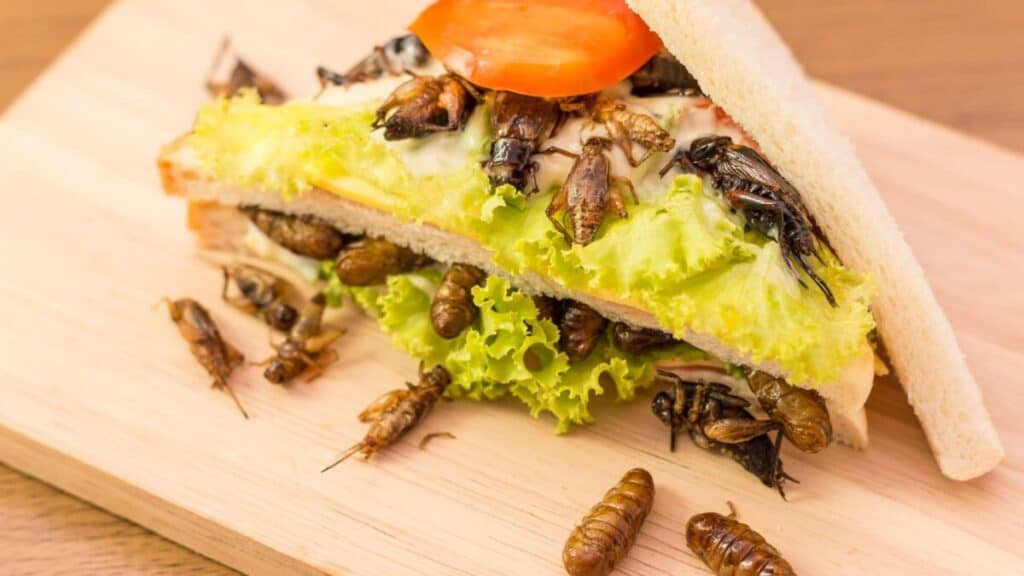
The problem comes from why the insects are laying the eggs in the first place. While some insects will lay eggs wherever they see fit, there are other insects, namely flies, that will only lay eggs on rotting food, in particular meat.
So, if you spot eggs on meat, then don’t bother cooking the meat at all. Throw it away. The eggs are not dangerous, it is just that the eggs being there has given you the signal that the meat is dangerous to consume.
How Do You Remove Insect Eggs From Food?
As we have said several times, you probably don’t need to remove insect eggs from food. It is going to do absolutely no harm in leaving the eggs there.
However, if you do wish to remove them before cooking, then there are a few things that you can do.
As a note: if there is a serious infestation of insect eggs, we probably wouldn’t recommend that you attempt to cook the food at all. Throw the food out and buy some new food.
While there is still going to be no harm in actually cooking and eating the insect eggs, when insects tend to lay a lot of eggs on a piece of food, it does often indicate that there is something wrong with that piece of food e.g. it is rotten, or it has gone moldy.
Wash Your Fruits and Vegetables

There is a reason why you are told to wash any fruits and vegetables that you may have. Not only does it help to remove any soil from the foods, but it will also help to flush away any bugs. Trust us, there will be some bugs hanging about on your fruits and vegetables.
Run the fruits and vegetables under a cold tap (so you aren’t cooking them), for a few minutes. Make sure that you scrub the fruits and vegetables with your hands as you do.
If you have vegetables with leaves (e.g. cabbages and lettuces), then make sure that you clean in between the leaves.
Microwave Your Foods
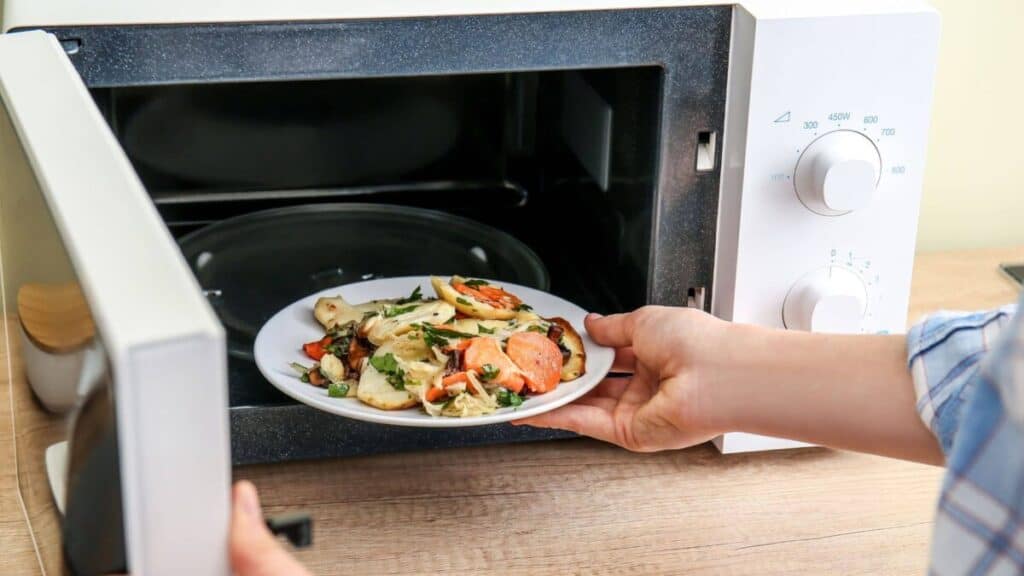
If you are not cooking your foods, then you could consider microwaving them a little and then allowing them to cool down.
This is a technique that many people use when they are dealing with insect eggs in grains, including flour and cereal.
You don’t need to put the food in the microwave for too long. In fact, we recommend that you don’t leave it in for too long. The longer the food is in the microwave, the more chance it has of starting to cook and burning.
Sticking something in the microwave for around 30-seconds at 500 watts should be more than enough to destroy any insect eggs.
You may want to pause the cooking every 10-seconds, though. It will allow you to see whether you are burning the food.
Freeze Your Foods
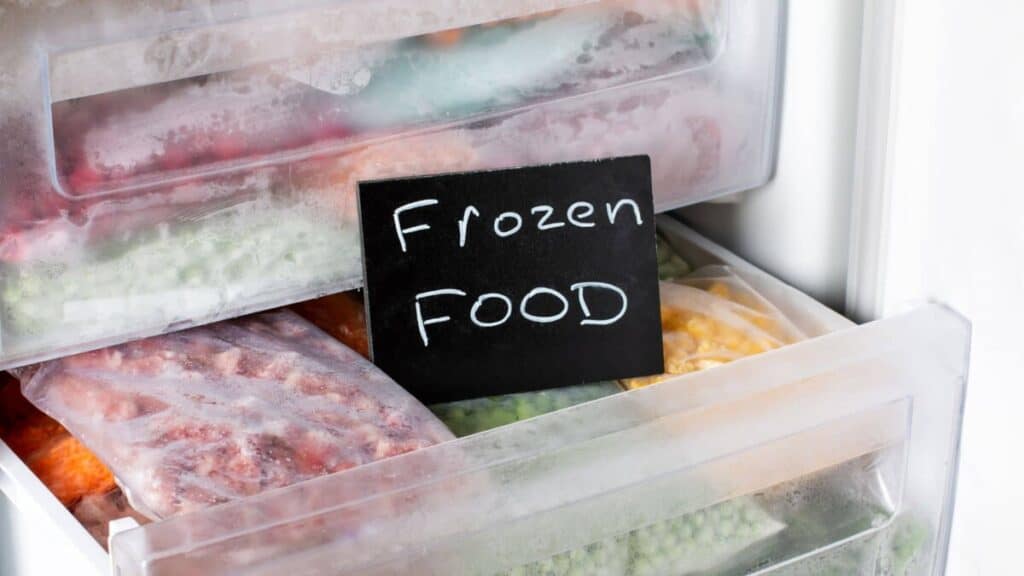
If you have foods that can be frozen (e.g. fruits, vegetables, etc.) then you can just stick them in the freezer for a couple of days. This should kill the insect eggs.
There are some insect eggs that will just go into a dormant phase while they are being frozen. However, these types of eggs seem to be pretty rare, so we wouldn’t worry too much about that.
Freezing your foods will also destroy any insects that have hatched into your foods.
Sieve Your Foods
Due to the size of insect eggs, this may not be something that will always work. However, you may want to try and sieve some of your foods e.g. flour. This way you will be able to filter out any insects that have managed to hatch.
This is pretty much going to be a last resort when trying to get rid of the insect eggs. Any one of the previous methods should work perfectly.
Final Word
Insect eggs cannot survive cooking. Although, chances are that you don’t need to cook them anyway. Unless the insect eggs are being laid on the food because the food is starting to rot or go moldy, then there isn’t any danger in eating the insect eggs uncooked.
Your stomach will kill them off. You have probably already eaten countless insect eggs before anyway. You will be surprised at how common they are in processed food.
Alright, that’s it for this article, here are a few hand-selected articles that you might also find interesting reads:
TOP 10 more protein filled insects you Can EAT!Can Any Insects Survive in the Human Body? Things to Be Aware Of
Why Don’t Insects Drown? the Quick Answer
References
Recent Posts
Tiny Black Bugs in Bathroom NO WINGS: What They Are and What to Do!
Finding tiny black bugs in your bathroom can be uncomfortable, to say the least. Especially if they are persistent, or they appear in very large numbers, which they often like to do. When it...
Tiny Black Bugs in Plant Soil - What Are They & What To Do About It
A short horror story: You get a new houseplant. You do your best to take care of it. You’ve ensured that it has the right soil, the right amount of sun, it gets enough water. And then one day, you...

